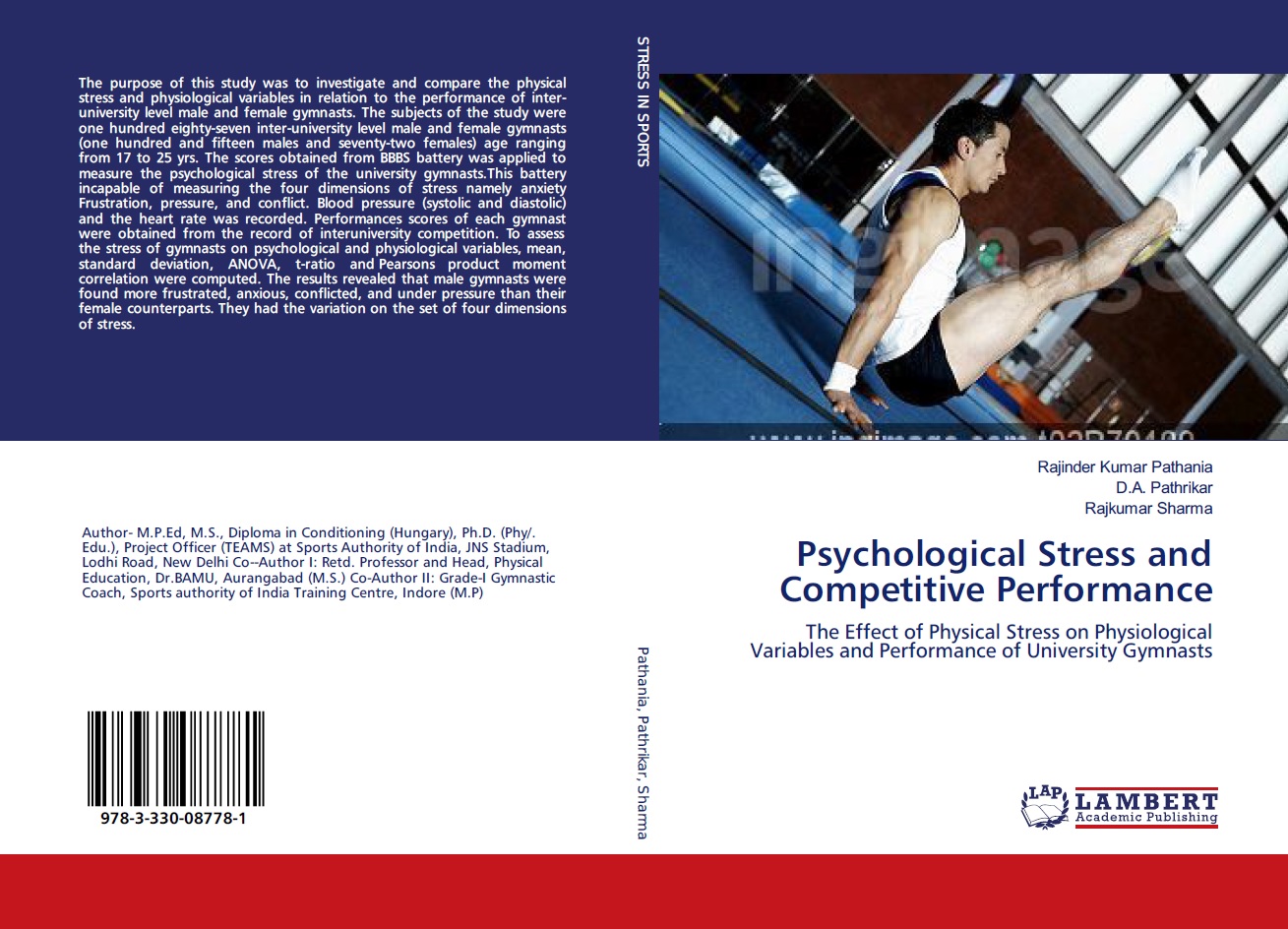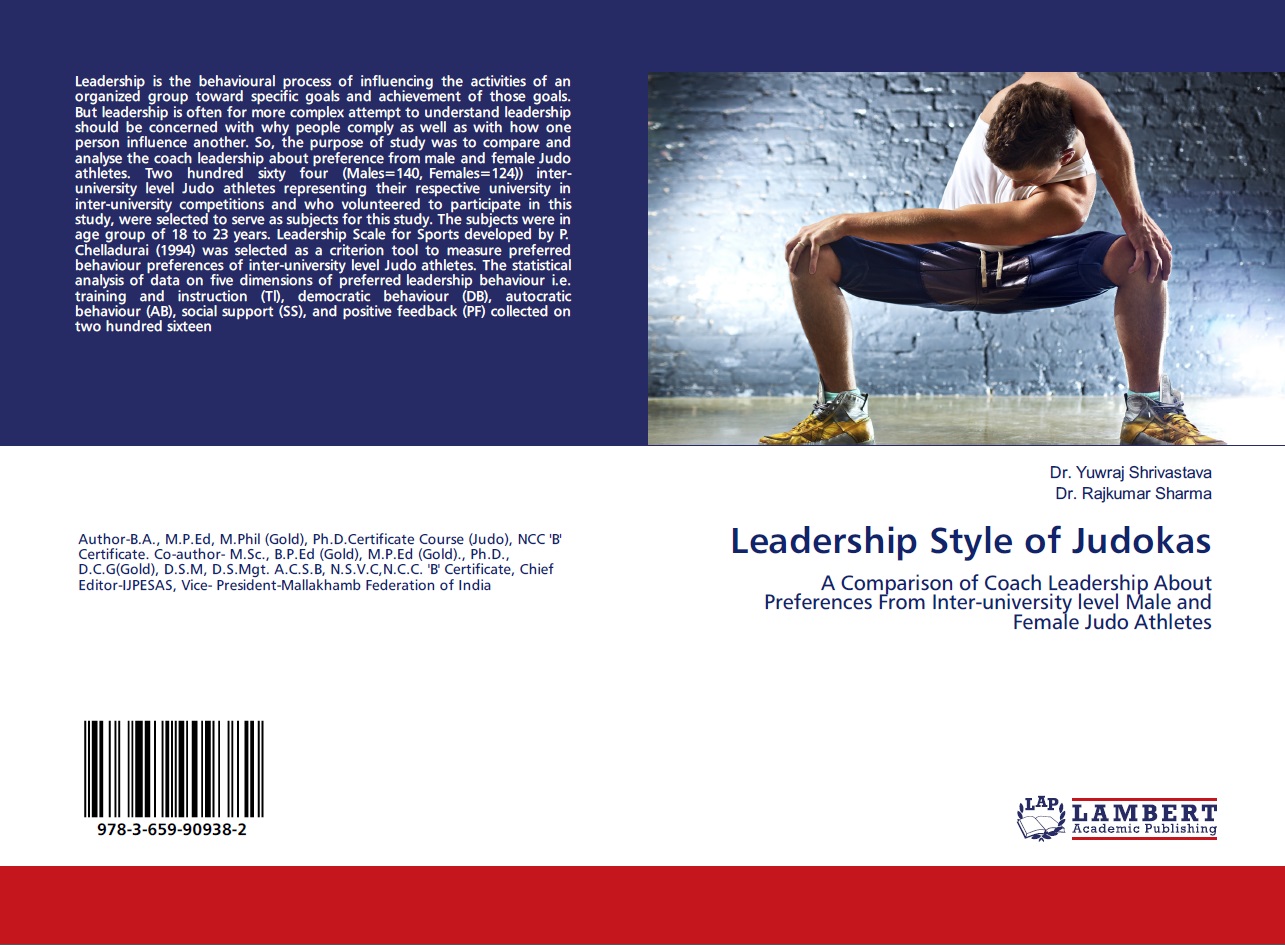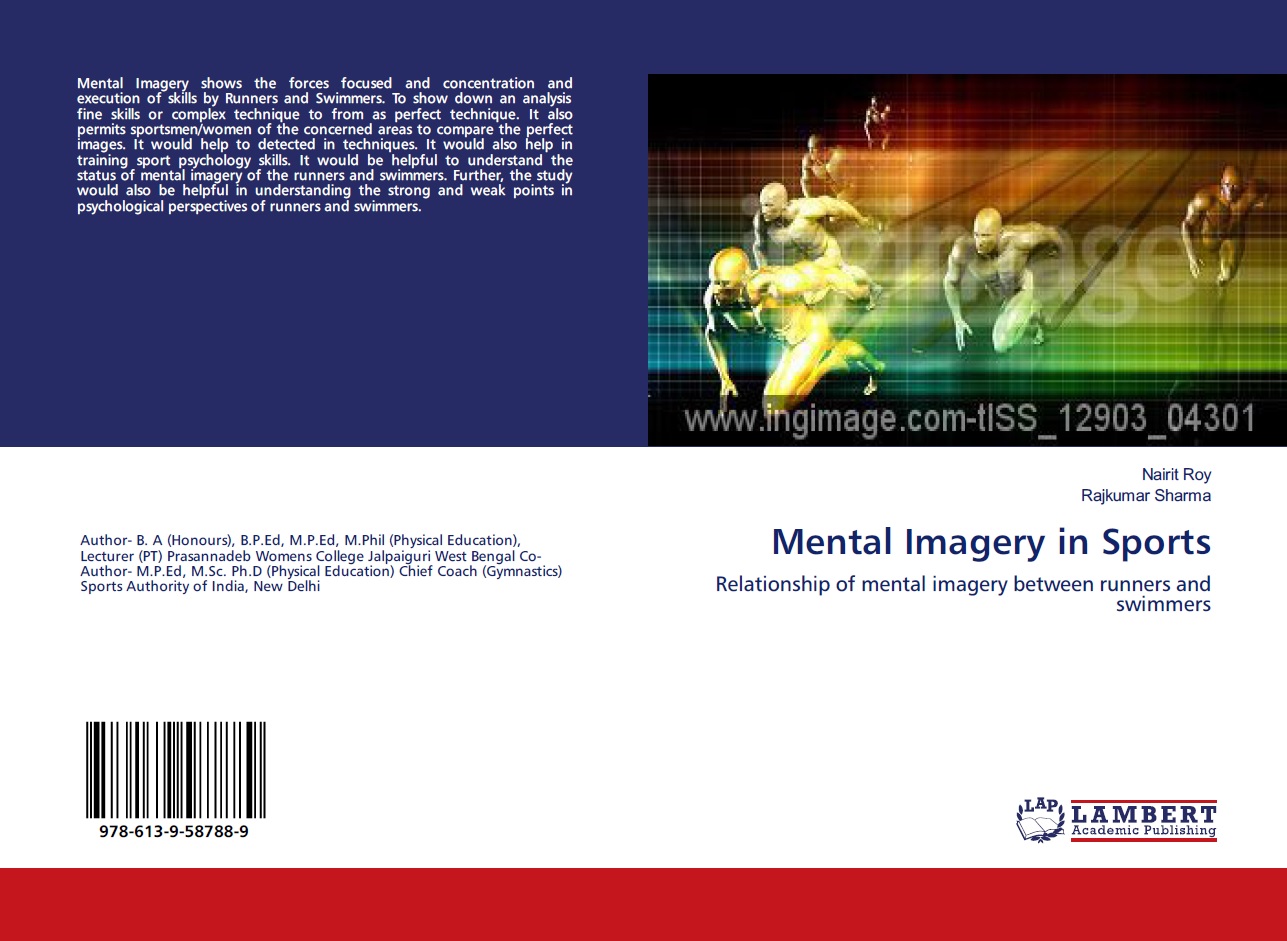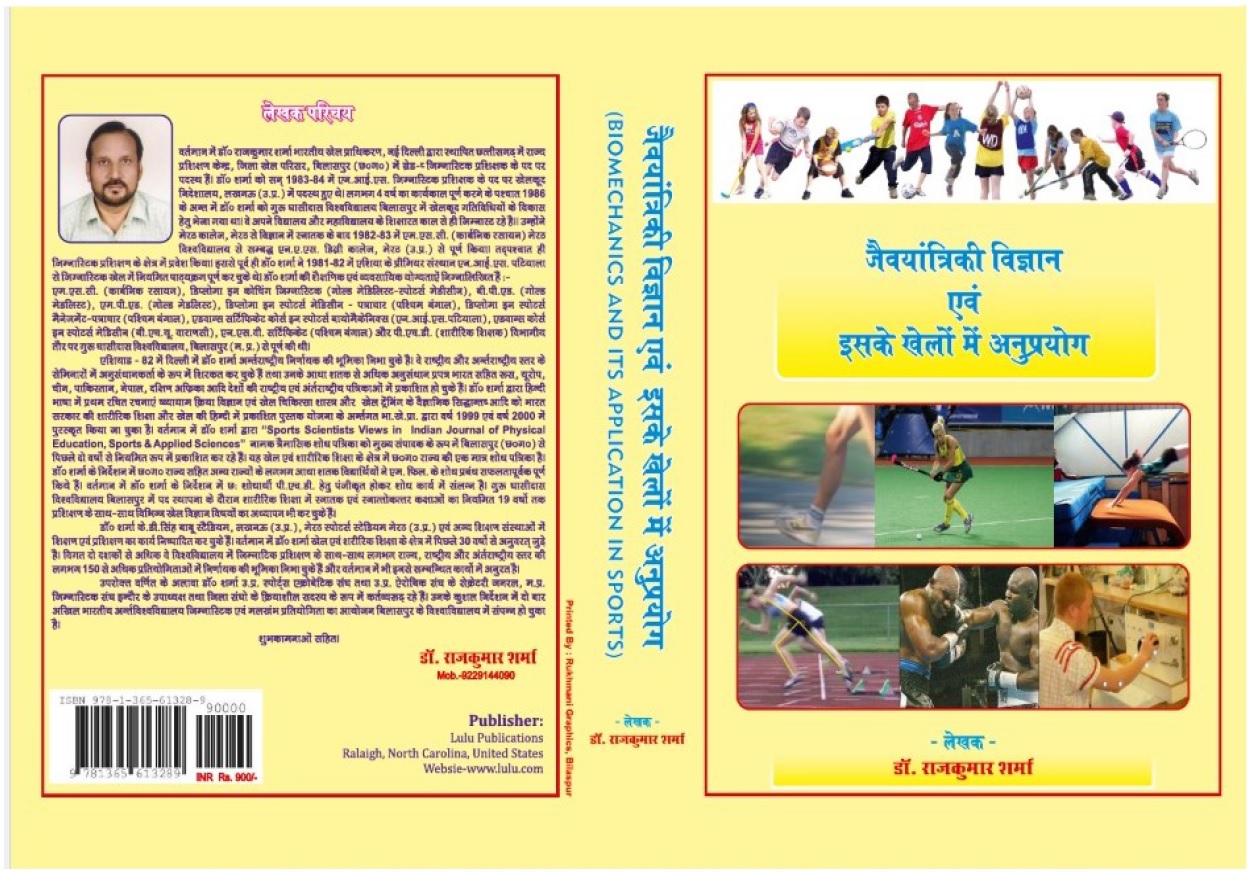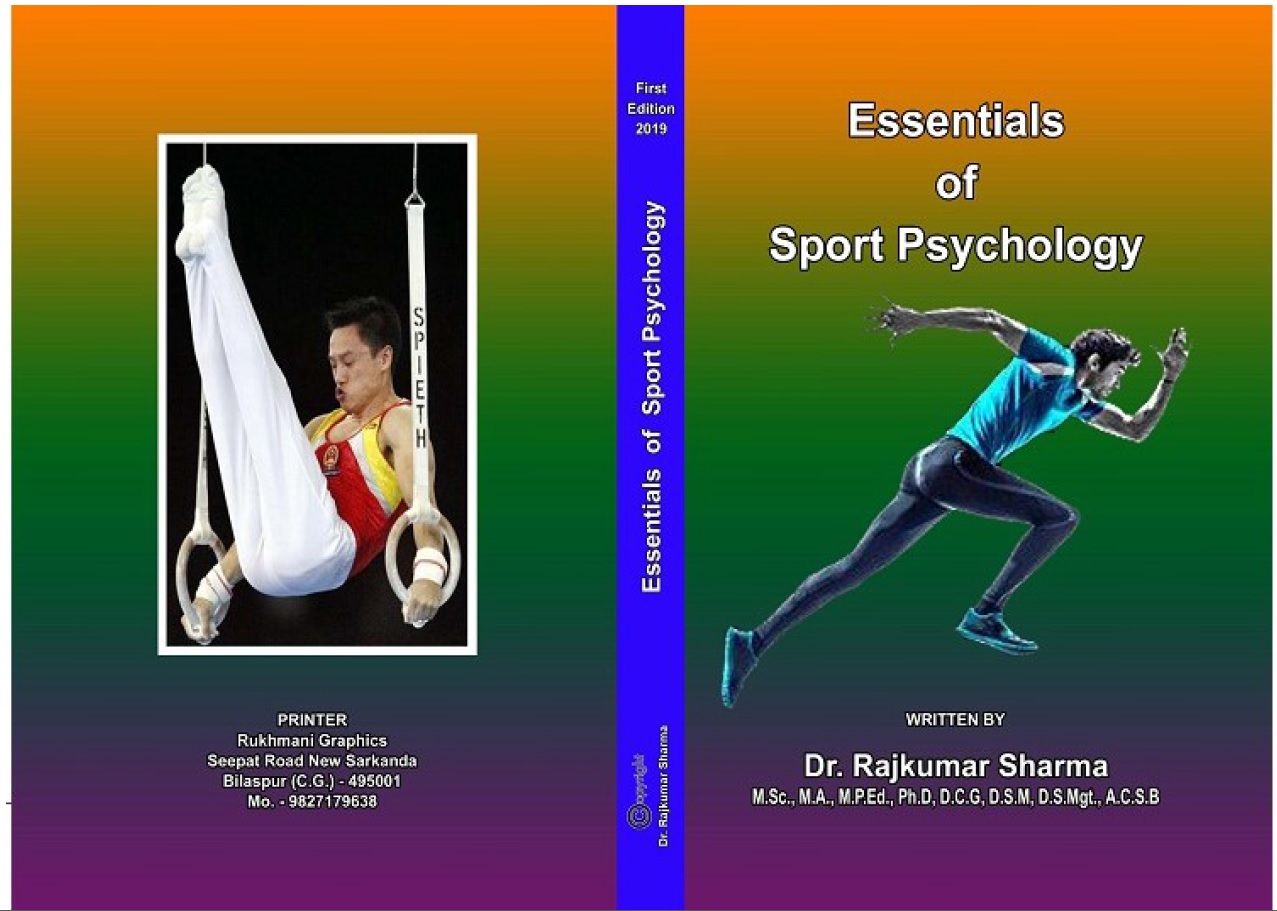| S.No. | Total View Count | Title of Manuscript | Page No | Download/ PDF |
|---|---|---|---|---|
| 1 | PERFORMANCE ANALYSIS OF PHYSICAL EDUCATION MANAGEMENT AMONG SCHOLASTICALLY INTELLIGENT AND WEAK SECONDARY SCHOOL STUDENTS ON EMOTIONAL MATURITY OF J AND K Author: Surishta Devi1 and Kamal Vijayvargiya2 | 41-49 |  5 5 |
Article info
doi no.: 05-2016-44975451; https://doi-ds.org/doilink/04.2024-68169486/IJPESAS/V13/NO.2/APRIL-2023/A6
AFFILIATIONS:
1. Research Scholar, Department of Physical Education, Tantia University, Sri Ganganagar, Rajasthan, ssss367944@gmail.com,7889916565,
2. Assistant Professor, Department of Physical Education, Tantia University, Sri Ganganagar, Rajasthan, kamalvijay71@gmail.com, 9828506235,
*Corresponding author: Kamal, Vijayvargiya, Assistant Professor, Department of Physical Education, Tantia University, Sri Ganganagar, Rajasthan, kamalvijay71@gmail.com, 9828506235
Recently, physical fitness, sports as well as recreation become more and more trending in between the secondary school students. PE is unrecognized since pupils lose encouragement as well as self-assurance in order to attend these classes. The majority of the PE syllabus in secondary schools are inefficient. Further, it cannot assure the accomplishment of educational objectives. A large number of students say that attending physical education classes cause strong negative feelings. Educators report that the educational circumstances do not offer the opportunities to attain the various objectives of PE. This issue cannot be sorted out by refining or upgrading the current school curriculum: this needs the entire replacement of the current PE framework in the secondary school education. The consequential crisis of PE in the secondary school is established in the absence of learning encouragement in students. The syllabus does not motivate the students to participate in PE classes, both during the extracurricular activities as well as within the training sessions. Planning the advanced curriculum should depend on the exceptional requirements of postmodern schoolchildren. This requires reconsidering the nature and behavior of PE in the secondary school education. This paper provides the significant research on the PE management among the secondary students of J&K on several aspects of Emotional Maturity.
Keywords: Curriculum, Emotional Maturity, Physical Education, Education, Sports& Fitness.
References
AAHPER (1965). AAHPER Youth Fitness Test Manual Revised;Washington:D.Cpublications.
Balga, T., Antala, B., & Argajová, J. (2019). Attitudes of elementary school pupils towards physical education and their differentiation from the point of view of age, sporting level and gender. Journal of Physical Education and Sport, 19(1), 552-559.
Bogdanov, A., Knudsen, L. R., Leander, G., Paar, C., Poschmann, A., Robshaw, M. J. & Vikkelsoe, C. (2007). PRESENT: An ultra-lightweight block cipher. In Cryptographic Hardware and Embedded Systems-CHES 2007: 9th International Workshop, Vienna, Austria, September 10-13, 2007. Proceedings 9 (pp. 450-466).Springer Berlin Heidelberg.
Brusseau, T. A., & Hannon, J. C. (2015). Impacting Children's Health and Academic Performance through Comprehensive School Physical Activity Programming. International Electronic Journal of Elementary Education, 7(3), 441-450.
Elumalai, G., Hashim, A., Shahril, M. I., Salimin, N., Mojilon, F. J. F., Hashim, J. M., & Razak, S. M. A. (2019). Health-Based Physical Fitness Level By Gender Among Form Six Sports Science Students In The State Of Kedah. International Journal of Physiotherapy, 211-216.
Fitzclarence, L., & Tinning, R. (1990). Challenging hegemonic physical education: Contextualizing physical education as an examinable subject. Physical education, curriculum and culture: Critical issues in thecontemporary crisis, 169-193.
Garcia, M. A., Bojos, M. T., & Sy, G. U. (2021). Potential factors in engaging physical activity beyond Physical Education class. European Journal of Physical Education and Sport Science, 6(10).
Gavrilov, D., Komkov, A., & Malinin, A. (2005). Innovative technology aimed at psychophysical diagnostic of students: methodological recommendations. St. Petersburg: NO-IFC.
Green, K. (2008). Understanding physical education. Understanding Physical Education, 1-288.
Kostromin, O. V., Zaitsev, A. V., & Bobrov, I. V. (2019). Educational and managerial provisions for sportizated physical education in academic elective physical education and sport services. Teoriya i praktika fiz. kultury, (4), 31.
Macfadyen, T., & Bailey, R. (2002). Teaching physical education 11-18: Perspectives and challenges.
 admin@sportscientistsviews.com
admin@sportscientistsviews.com

